‘Carmen’ Review: Lost Angels
Reimagining the classic tale as a modern cross-border romance, Benjamin Millepied's 'Carmen' dances to its own sensuous beat.
By André Hereford on May 7, 2023 @here4andre

The heroine of director-choreographer Benjamin Millepied’s Carmen (★★★☆☆) isn’t the wanton temptress of Bizet’s classic opera. Portrayed by Scream queen Melissa Barrera, this raven-haired Carmen might put a bullet in a man if she has to, but that’s because she’s a survivor, not a betrayer.
In fact, her journey in this dance- and music-driven drama begins with a warning from her late mother, voiced from the beyond, that men are not to be trusted.
All men, or just one man, madre says, it’s all the same: they yearn for the tears, milk, and blood of womanhood. Mother makes a rock-solid point, borne out by the succession of hungry, violent men hounding Carmen’s path from Mexico to Los Angeles.
Traveling on foot with a group of migrants trekking north to the U.S. border through the Chihuahuan Desert, Carmen fatefully runs into one violent man, though, whose heart, contrary to her mother’s warning, appears to pump blood, not sand.
Ex-Marine Aidan, embodied by Aftersun Oscar nominee Paul Mescal as still waters running deeper than we can know, is introduced working out his boxing moves on a heavy bag hung from a carport. He’s hungry, but held back by post-combat trauma he can’t express.
Hoping to jog his spirit, and his bank account, his sister Julieanne (Nicole da Silva) hooks Aidan up with the local civilian Border Patrol, whose trigger-happy leader incites the deadly gunfight that throws Aidan and Carmen together, on the run from her enemies, his enemies, and the law.

The first feature film from Millepied — former dance director of the Paris Opera Ballet, and choreographer of Black Swan — adapts Prosper Mérimée’s novella Carmen and its inspiration, The Gypsies, a narrative poem by Alexander Pushkin, into a rapturous visual ballet, blending dialogue, music by the brilliant Nicholas Britell (Moonlight), a few original songs, and dance.
Mescal, flattening his natural brogue into a flat, indiscernible American accent, sings and strums a sweetly sad ballad, laying Aidan’s open heart on the line.
Barrera, who, before she was dodging Ghostface, was high-kicking through the streets of Uptown Manhattan in In the Heights, serenades a fearful young migrant with a haunting melody, and later, performs a gorgeously-sung lament of impossible love.
The singing gives way to a luscious tango partnering Carmen with a handsome dancer from the enigmatic dive run by her godmother Masilda, played by the one and only Rossy de Palma, who delivers a typically impassioned, soulful turn.
The presence of Pedro Almodóvar’s illustrious muse signals, along with touches of magical realism, and the expressive costumes and choreography, the film’s bent towards artsy eccentricity, despite the ripped-from-the-headlines premise of a fatal standoff between migrants and a border patrol.

Millepied, with screenwriters Alexander Dinelaris and Loïc Barrère, has concocted a fable, not a screed or exposé, but a fairy-tale romance set in the iconic American West. Cinematographer Jörg Widmer shoots ribbons of highway laced through fields of golden grasses under bright blue skies with a foreigner’s fascination for the earthy palette and harsh terrain.
Carmen and Aidan hit the road in an ’88 Chevy pickup chased by muscle cars. In a different era, they’d be puffing clouds of Marlboros, too.
The pair generates plenty of heat in a sexy moonlit dance duet, and a brief love scene that unfolds like a tempestuous pas de deux. Barrera and Mescal’s obvious physical chemistry, however, can’t disguise that the film expends little effort, story-wise, shoring up their attraction beyond necessity in a hectic moment, and plain lust. They’re both two decent-seeming people, yet, ultimately, those still waters don’t run that deep.
But the view is gorgeous. Throughout, Widmer keeps the camera in smooth motion in sync with the action, be it acts of violence, or of rhythm and romance.
Millepied keeps the styles of music and choreography varied, taking us from Romani-inspired flamenco to a hip-hop-inflected boxing match dance number that plays like Stomp meets Fight Club. Dense with the atmosphere of desire, danger, and minor-key melancholy, it’s the world the film creates, more than the romance inside it, that seduces and wins the heart.
Carmen is playing in select theaters, including Landmark’s E Street Cinemas. Visit www.landmarktheatres.com or www.fandango.com.
‘Bonus Track’ is a Sweet Gay Teen Romance
The kids are alright in the delightful, pop-infused British gay teen romance "Bonus Track."
By André Hereford on February 23, 2025 @here4andre
The school outcast and the popular new kid in town make beautiful music together in the sweet, straightforward gay coming-of-age dramedy Bonus Track.
Mop-haired teen misfit George (Joe Anders), entering his final year at St. Sebastian's Catholic School in small-town West Yorkshire, England, isn't all that different from his peers. He's just utterly himself -- that is, introverted, a wee bit eccentric, and totally obsessed with pop and rock music.
Generally a loner, George collects and catalogs cassette tapes of his favorite artists' interviews and performances, which is only slightly weird for a 17-year-old in 2006. Yet, he's bullied relentlessly by the boys and girls at St. Sebastian's. In turn, he dreams of one day showing them all when he's playing sold-out arenas as a pop superstar.
Dana Tai Soon Burgess Gets Personal
Choreographer Dana Tai Soon Burgess brings three deeply personal works to the Woolly Mammoth stage next weekend.
By Ryan Leeds on February 23, 2025
Dorothy was right: There's no place like home. Forging a new community partnership with Woolly Mammoth Theater, the Dana Tai Soon Burgess Dance Company will soon have a chance to return to Washington's Chinatown, where the renowned troupe -- now in its 32nd year -- began performing.
"We have a lot of roots that go all the way back when we used to do projects like dancing on the streets there," Burgess says. "It's great to have a season downtown, and we're really excited about cross-germinating the theater audience and the dance audience. I think it's the right audience to understand these pieces because a lot of my works have a storytelling aspect to them."
Synetic Works its Magic on Charlie Chaplin in ‘The Immigrant’
Synetic's magnificently layered riff on Charlie Chaplin and his most iconic character hits close to home.
By Kate Wingfield on March 27, 2025
Like life imitating art and art imitating life, Synetic Theater currently has rather a lot in common with the subject of their production of The Immigrant, a riff on Charlie Chaplin and his tragic-comic character known as the Little Fellow.
Not only are Synetic's founders themselves immigrants, but the company is now as homeless as Chaplin's character. Add the fact that the headlines don't go a day without covering the plight of immigrants of all stripes, and it's all happening here under the bowler hat.
Of course, having no space to call home is no laughing matter -- especially since Synetic must move between area theaters, even mid-run, as in the case of The Immigrant. This must be taking its toll.
Support Metro Weekly’s Journalism
These are challenging times for news organizations. And yet it’s crucial we stay active and provide vital resources and information to both our local readers and the world. So won’t you please take a moment and consider supporting Metro Weekly with a membership? For as little as $5 a month, you can help ensure Metro Weekly magazine and MetroWeekly.com remain free, viable resources as we provide the best, most diverse, culturally-resonant LGBTQ coverage in both the D.C. region and around the world. Memberships come with exclusive perks and discounts, your own personal digital delivery of each week’s magazine (and an archive), access to our Member's Lounge when it launches this fall, and exclusive members-only items like Metro Weekly Membership Mugs and Tote Bags! Check out all our membership levels here and please join us today!
The Magazine
-
Most Popular
 'Porn Star University' Started by Gay-for-Pay Creator Andy Lee
'Porn Star University' Started by Gay-for-Pay Creator Andy Lee  Win Tickets to Awesome Con!
Win Tickets to Awesome Con!  Awesome Con Celebrates the Geek in All of Us
Awesome Con Celebrates the Geek in All of Us  The Commanding Style of Nathan Lee Graham
The Commanding Style of Nathan Lee Graham  Anheuser-Busch Abruptly Ends Sponsorship of St. Louis PrideFest
Anheuser-Busch Abruptly Ends Sponsorship of St. Louis PrideFest  Montana Governor Signs Anti-Trans Bills into Law
Montana Governor Signs Anti-Trans Bills into Law  Trump Targets Law Firm for Defending Transgender Rights
Trump Targets Law Firm for Defending Transgender Rights  Riki Wilchins: 'Not Passing is Now a Criminal Offense'
Riki Wilchins: 'Not Passing is Now a Criminal Offense'  Texas 'Sexual Content' Bill Would Criminalize Literary Works
Texas 'Sexual Content' Bill Would Criminalize Literary Works  Film: Spring Arts Preview 2025
Film: Spring Arts Preview 2025
 3 Million People Could Die Due to HIV Funding Cuts
3 Million People Could Die Due to HIV Funding Cuts  Celebrities Urged to Boycott Hungary Over Pride Ban
Celebrities Urged to Boycott Hungary Over Pride Ban  The Commanding Style of Nathan Lee Graham
The Commanding Style of Nathan Lee Graham  Texas 'Sexual Content' Bill Would Criminalize Literary Works
Texas 'Sexual Content' Bill Would Criminalize Literary Works  Awesome Con Celebrates the Geek in All of Us
Awesome Con Celebrates the Geek in All of Us  Win Tickets to Awesome Con!
Win Tickets to Awesome Con!  Film: Spring Arts Preview 2025
Film: Spring Arts Preview 2025  Classical & Choral Music: Spring Arts Preview 2025
Classical & Choral Music: Spring Arts Preview 2025  Broadway: Spring Arts Preview 2025
Broadway: Spring Arts Preview 2025  Gallery: The Emotionally Sensual Artwork of Soltian
Gallery: The Emotionally Sensual Artwork of Soltian
Scene
Metro Weekly
Washington's LGBTQ Magazine
P.O. Box 11559
Washington, DC 20008 (202) 638-6830
About Us pageFollow Us:
· Facebook
· Twitter
· Flipboard
· YouTube
· Instagram
· RSS News | RSS SceneArchives
Copyright ©2024 Jansi LLC.





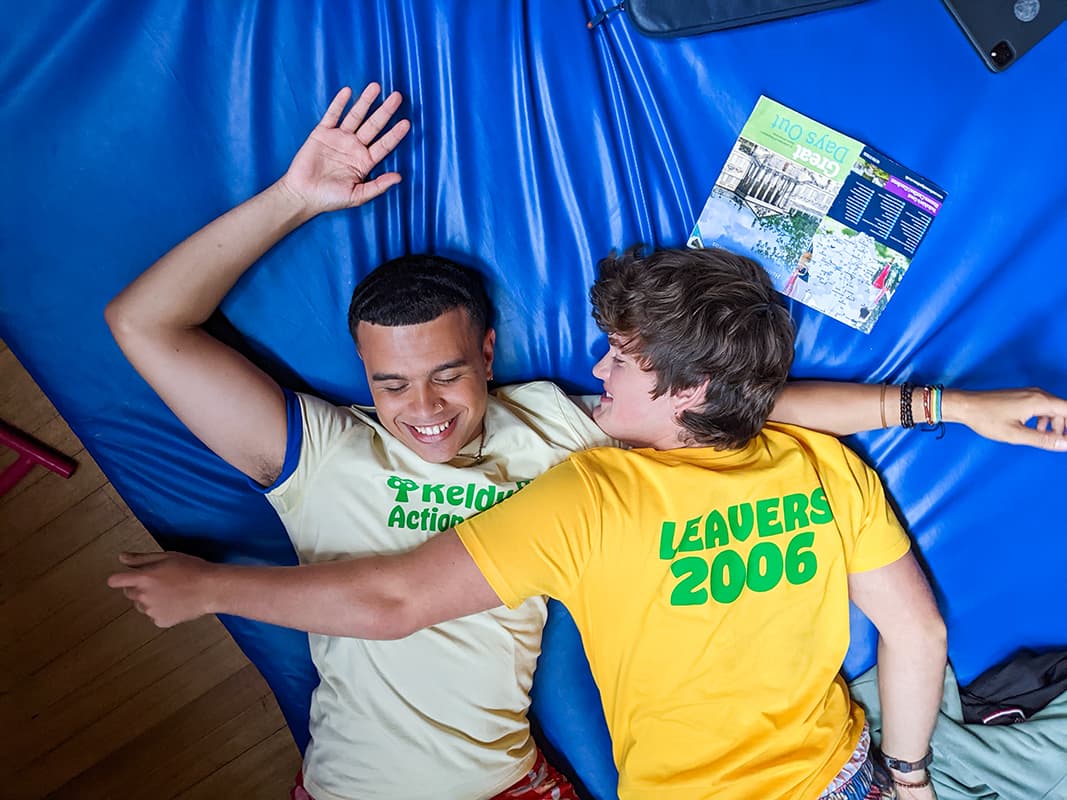
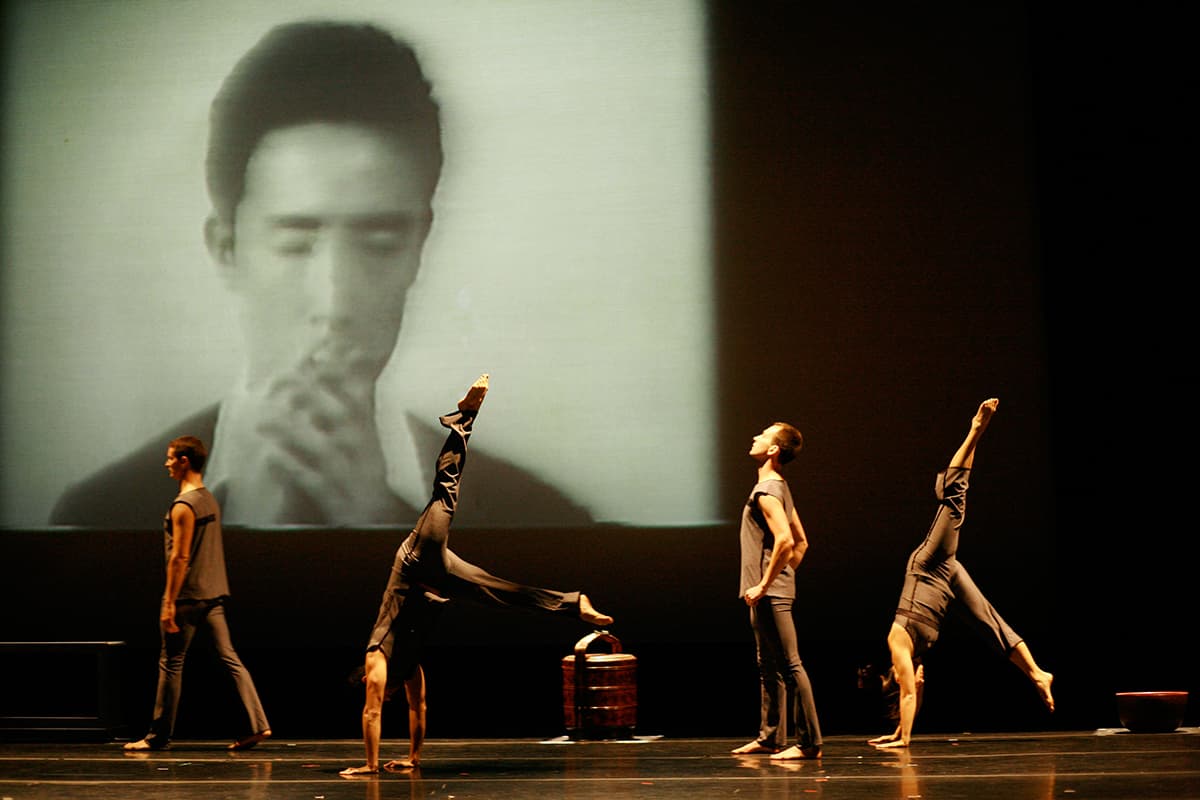
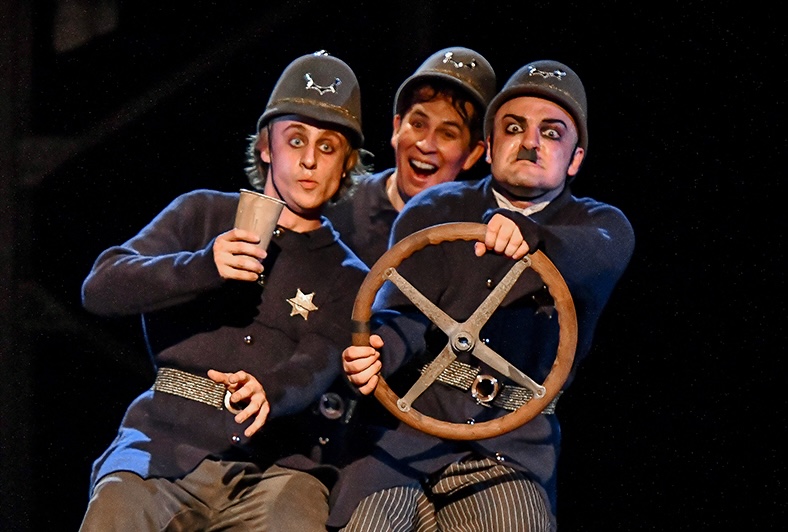
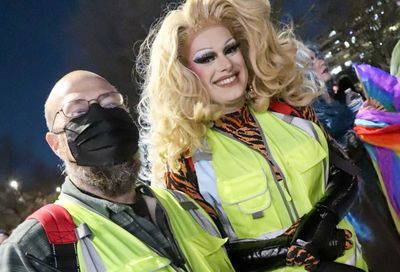
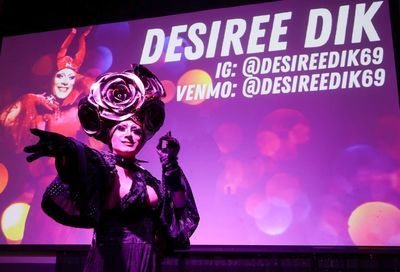

You must be logged in to post a comment.